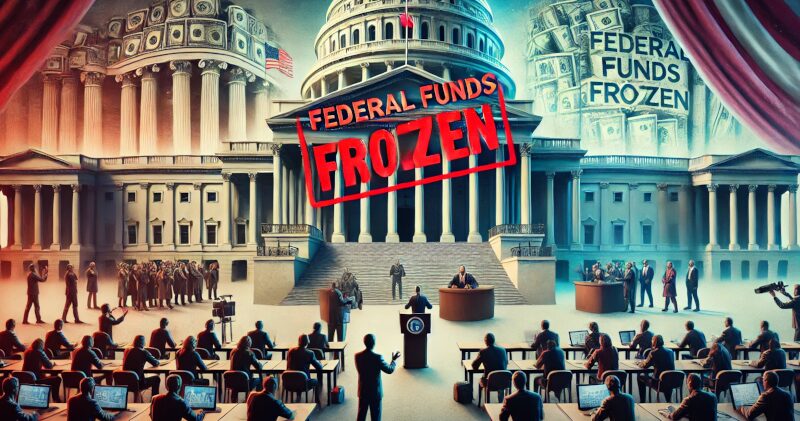The Trump administration just tried to put a hold on a bunch of federal funding, and it turned into a legal mess almost instantly.
On January 27, 2025, the Office of Management and Budget (OMB) sent out a memo saying certain federal financial aid programs needed to be frozen for review. This was supposed to kick in at 5 p.m. on January 28, but right before that deadline, a judge stepped in and blocked it—at least in some states.
The freeze still technically went into effect, but the lawsuits started piling up fast.
This is a big deal because the freeze was aimed at funding for foreign aid, non-government organizations, diversity and inclusion projects, gender-related policies, and environmental initiatives.
Even though some things—like Social Security, Medicare, and food assistance—weren’t affected, the whole thing caused a lot of confusion. Some organizations suddenly couldn’t access their funds, Medicaid’s payment portal was down, and nobody seemed to have clear answers.
A few days later, the legal fights escalated.
Twenty-two states and Washington D.C. sued to stop the freeze, and a federal judge shut it down in those areas. The judge basically said the order was way too broad and didn’t have a legal basis. Even so, the fight is far from over.
This didn’t just come out of nowhere. The Trump administration has been saying for a while that they want to cut back on certain government-funded programs, especially ones tied to progressive policies like diversity, gender studies, and climate initiatives.
The argument is that these programs don’t line up with their priorities and could be wasting taxpayer money.
It also fits into a bigger effort to take control of federal spending. Trump’s team has criticized how money was handled during Biden’s presidency, especially in areas like foreign aid and climate projects. So by freezing funds, they’re basically trying to take stock of where the money is going and potentially redirect it.
But here’s the problem: the president isn’t allowed to just stop spending money that Congress has already approved. There’s a law—the Impoundment Control Act of 1974—that says he can’t do that without Congress signing off. That’s why the lawsuits came so fast. Legal experts say this move oversteps executive power, and the courts seem to agree.
For people who depend on these federal programs, this kind of uncertainty is a nightmare. Nonprofits, universities, and local governments that rely on government grants are now stuck in limbo, not knowing if or when they’ll get their money.
That means potential layoffs, stalled projects, and financial headaches for a lot of people.
Financial markets don’t like uncertainty either. Wall Street hasn’t reacted too dramatically yet, but investors are keeping a close watch. If this turns into a broader spending crackdown, certain industries—especially ones tied to government contracts, clean energy, and education—could take a hit.
On the flip side, businesses that benefit from deregulation might see this as a good thing.
One big thing to watch is the bond market. If investors start doubting how stable U.S. fiscal policy is, borrowing costs could go up. That would make it more expensive for businesses and regular people to get loans, which could slow down economic growth.
The bottom line is this: Trump’s team wants to reshape federal spending, but the courts are already pushing back.
Right now, it’s mostly legal and political chaos, but if this drags on or escalates, it could have real economic consequences. We’ll see where it goes from here.




